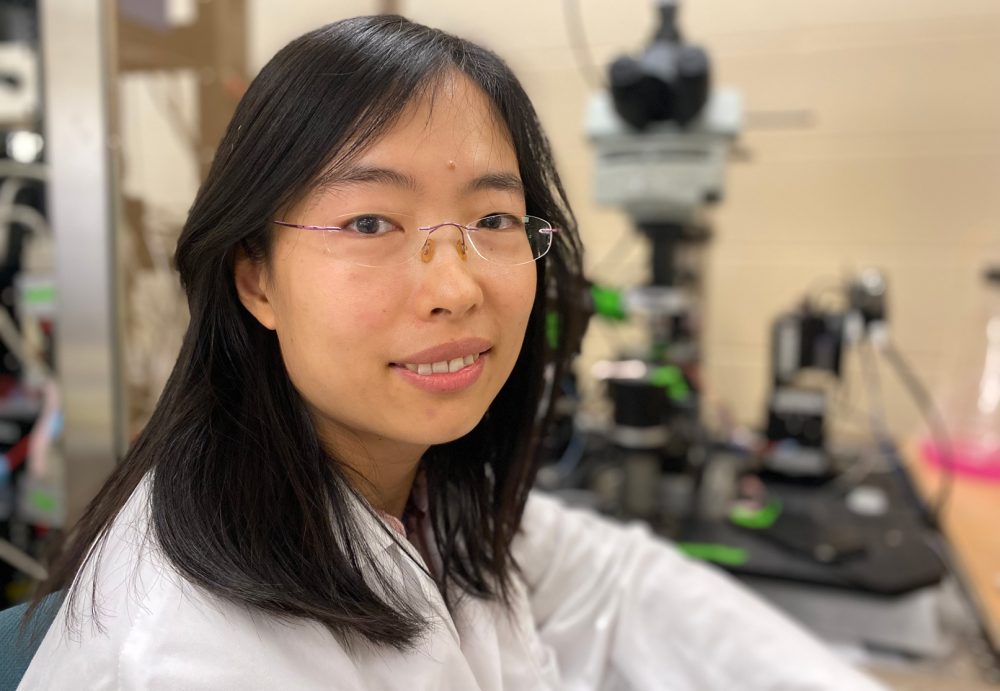Advertisment
Pharmacy researcher earns $2.3 million NIH award to study opioid addiction

A University of Kansas researcher is taking a novel approach to the prolific problem of opioid addiction in America. With a $2.3 million grant from the National Institute on Drug Abuse, Zijun Wang will research the implications of the DNA break-and-repair process in opioid use disorder.
Wang’s work is based on the premise that opioid addiction is a psychiatric disorder caused by molecular changes in the brain that alter behavior.
“Drug addiction is not a moral failing,” said Wang, assistant professor of pharmacology & toxicology. “In terms of addiction, the reward pathway in the brain is hijacked by repeated drug exposure. Drug-induced structural changes result in many abnormal behaviors, including reduced inhibitory control that prevents someone from avoiding behaviors with negative consequences.”
The human genome consists of more than 3 billion base pairs of DNA, which contain more than 20,000 genes. This genetic material is used in complex biochemical processes in human cell function, development and replication. Wang said the genome is under attack from a variety of sources. Normally, the DNA repair process can overcome these attacks, but repeated drug exposure can disrupt this process, “changing gene expression, cell function and leading to abnormal drug addiction-related behaviors.”
Wang’s research focuses on the DNA break-and-repair processes disrupted by addiction. Ultimately, Wang said she aims to “help the genome maintain a normal or healthy environment in the cell and identify a potential therapy for these patients to prevent them from relapsing to drug use.”
The therapeutic approach needed to target DNA breaks has yet to be developed but could come in the form of a drug or gene therapy. “Right now, we are still at the initial step, but eventually we want to provide novel insight for the development of future therapies,” Wang said. “The first thing we want to do is have a clearer idea of the neurobiology underlying this opioid addiction.”
“The work on this grant addresses a critical issue: what causes drug users to relapse to using drugs after they manage to quit drug use,” said Nancy Muma, chair of the Department of Pharmacology & Toxicology. “Zijun has developed a novel approach to determine if the problem is damage to the person’s genes. If this is the case, then future research can begin to address ways to mitigate the damage to the genes to prevent or reduce relapse.”
“This is novel research that no one else has done before,” Wang said. “How does DNA damage contribute to opioid addiction? We’re trying to make a link between those. At the end of the day, we want to find a treatment that can reduce drug-seeking behavior.”
This grant is funded through the Genetics or Epigenetics of Substance Use Disorders Avenir Award program that supports highly creative early-stage investigators proposing innovative studies that open new areas of research for the genetics or epigenetics of addiction.
Photo: Zijun Wang, assistant professor of pharmacology & toxicology at the University of Kansas.





